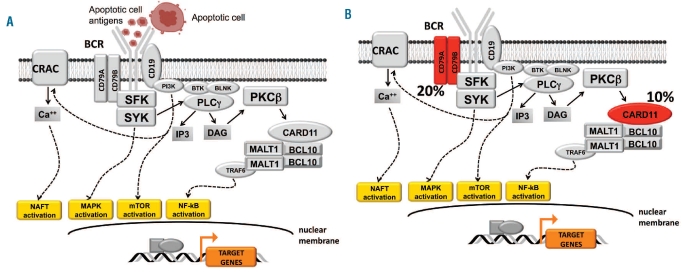Figure 1.
Mechanisms of BCR involvement in different types of B-cell neoplasia. The mechanisms of BCR activation in B-cell neoplasia are different in indolent versus aggressive B-cell neoplasms. (A) In CLL, as well as in other indolent B-cell disorders, the contribution of BCR signaling to tumor growth is conceivably due to receptor stimulation by foreign or auto-antigens. In the case of many CLL with stereotyped BCR, autoantigens are frequently derived from apoptotic cells. Genetic alterations of BCR components are rare or absent. (B) In aggressive B-cell malignancies, best exemplified by the case of diffuse large B-cell lymphoma, BCR activation proceeds through genetic lesions altering specific components of the BCR itself. In the case of activated B-cell-like diffuse large B-cell lymphoma, somatically acquired mutations of CD79A/CD79B and of CARD11 are found in 20% and 10% of the cases, respectively. These genetic lesions are responsible for tonic BCR signaling, which provides mitogenic signals to the tumor clone.

